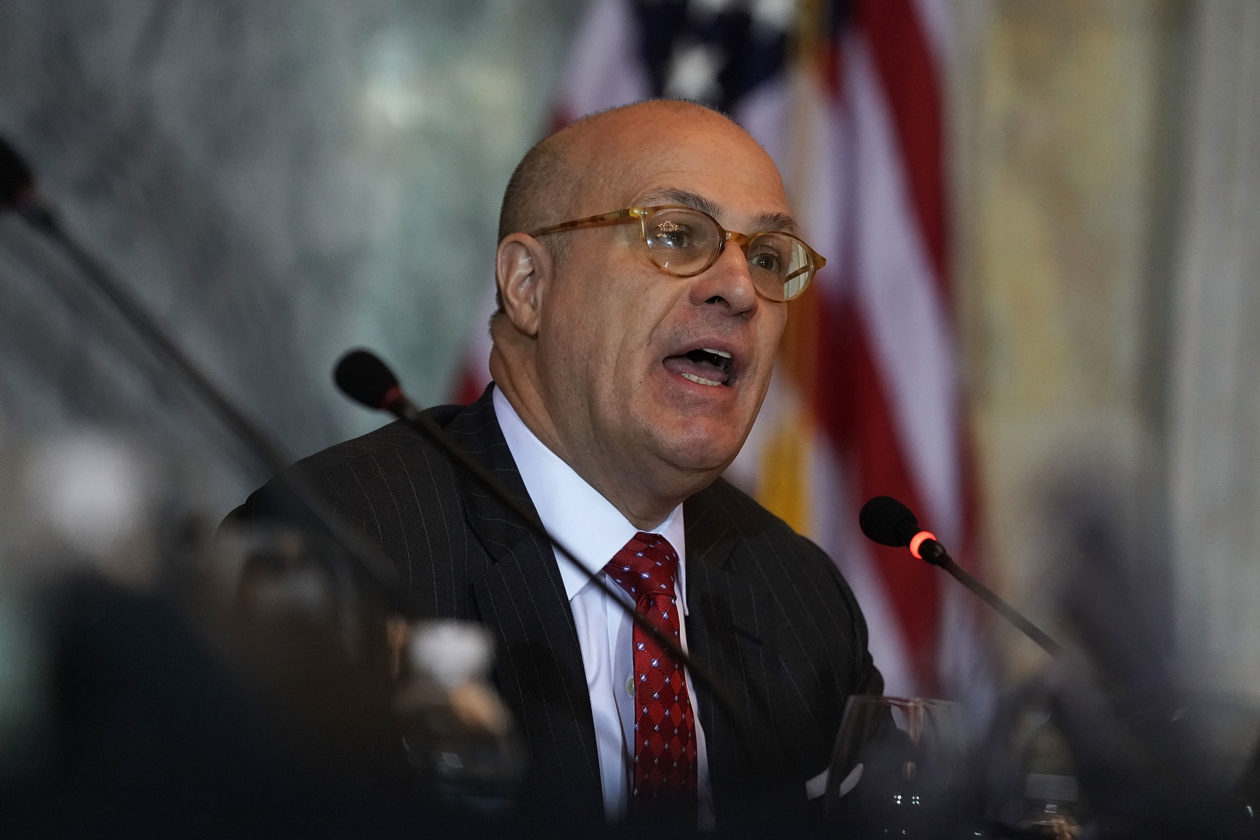Christopher Giancarlo, the former chairman of the U.S. Commodities Futures Trading Commission, expressed his disappointment in Washington’s hostility towards cryptocurrency in an interview with Forkast for an upcoming Word on the Block episode.
“We are, in the United States, like deer caught in the headlights, at least in the official sector, because of these transformative, challenging new technologies,” said Giancarlo.
According to Giancarlo, Washington regulators are unfriendly towards decentralized technologies because they threaten the existing financial system. He called for the U.S. to stop resisting crypto innovation and view it as an opportunity to reset the financial system in a more democratic and financially inclusive way.
His comments come in light of recent regulatory actions by the U.S. Securities and Exchange Commission following the collapse of the FTX cryptocurrency exchange. The SEC has since been cracking down on exchanges and trading platforms, including legal actions against Coinbase, Kraken and Bittrex.
“The scandal of FTX is entirely a Washington scandal,” said Giancarlo.
See related article: Bankrupt FTX recovers US$7.3 billion in assets, considers resurrection of operations
“I’ve recently been in Sao Paulo, Brazil, I was in Europe, I was in Japan talking to financial regulators there [and] they’re not overly focused on FTX. They’re focused on the opportunities that are coming with this technology and how to further their own economic interests,” he added.
He said the U.S. crypto crackdown is as an administration policy carried out by regulatory agencies.
Both the CFTC and SEC are not agencies of the executive branch. They are independent agencies that report to both Congress and the White House.
“I do find they are acting, certainly in the case of the SEC, as if they are actually executive branch agencies carrying out administration policy,” Giancarlo said.
Government interest in cryptocurrencies accelerated in 2019 after social media titan Meta, then known as Facebook, announced its now-defunct Libra (later renamed Diem), a project intended to develop a digital currency for billions of its users.
Facebook’s plans raised red flags among financial regulators around the world, including the U.S.
“The idea that we are going to turn over our financial data and information to that company, I think they have a big uphill effort to try to convince Americans that they ought to trust in Facebook’s proprietary interest in keeping your data secret,” Congresswoman Maxine Waters said at the time.
The Diem project highlighted concerns about the possibility of technology companies replacing traditional central banks and the privacy risks involved. This in turn accelerated discussions among governments about developing central bank digital currencies (CBDCs), including in the European Union and the U.S.
There are now at least 114 countries that are exploring development of sovereign digital currencies, according to the Atlantic Council, a U.S.-based think tank.
However, like Diem, the idea of a government-controlled digital dollar in the U.S. has raised privacy concerns around population surveillance.
“That’s a legitimate concern,” said Giancarlo, who is also a co-founder of the U.S.-based Digital Dollar Foundation, a non-profit that advocates for research and public discussion on the advantages and challenges of a CBDC, according to its website.
“That’s why [we have to] reaffirm our First Amendment rights, reaffirm our Fourth Amendment rights and demand that, whether digital currency is [developed] by government or the private sector, there must be no way to have individual surveillance,” he said.






